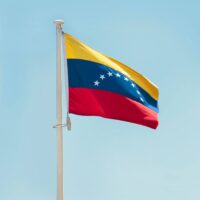While necessary to manage the fallout of the pandemic, limitations on the movement on people make it more difficult for asylum seekers and irregular migrants to access protection. As the civil war in Libya rages on asylum seekers and migrants have been turned away by European governments. As stated in a report by Amnesty International, Malaysia and Thailand have actively pushed back and even turned away boats carrying Rohingya refugees fleeing persecution. The United States is closing access to anyone claiming asylum and arriving through the southern border with Mexico.
This new migration rhetoric will have longer-term implications for socioeconomic inclusion and social unification in societies receiving immigrants. Stigmatization, misinformation, and discrimination are already leading to a rise in xenophobia. Economies that highly dependent on cash-flows from their immigrant diaspora face the threat of job losses as well as deportation measures resulting the government’s immigrant policies. While nationals are supposed to stay at home and limit contact with the outside world, the reality for migrants is somewhat different. Some states have created a “quasi-quarantine”, one in which migrants can and are supposed to work to support the survival of the economy even while contact with the outside world and interaction with locals are forbidden, and while curfew measures aimed at migrants restrict their access to basic care and services.
While the pandemic has brought attention to the vitality of migrant workers in many sectors of the economy, especially healthcare and agriculture, the longer-term impacts on immigrant policy seem to be heading towards more regulation of mobility and social inclusion. This may lead to a push for globalization, where models such as Singapore’s hub city model, the Schengen free-movement zone, or even internal migration and urbanization in India and China may require new flexibility and agility.
In the face of COVID-19, the rhetoric must change from discrimination to unification. The United Nations launched a campaign to fight misinformation and discrimination against refugees and migrants being falsely blamed and vilified for spreading the virus. The World Health Organization (WHO) issued guidelines to prevent public stigmatization of specific populations. While social media has been a source of anxiety and hate during the pandemic, it is also being mobilized for building a kinder discourse and serving as a space to display solidarity.
Once the pandemic subsides, restrictive border policies, especially in countries with governments pursuing migration policies, may be hard to undo. However, policymakers may be forced to rethink how they view migrant workers, who play an essential role in the functioning of their economies. Let’s hope the pandemic will lead them to call for better protection of foreign-born workers and value low-educated migrants as well as highly skilled ones as key contributors to the success and sustainability of their economies.








